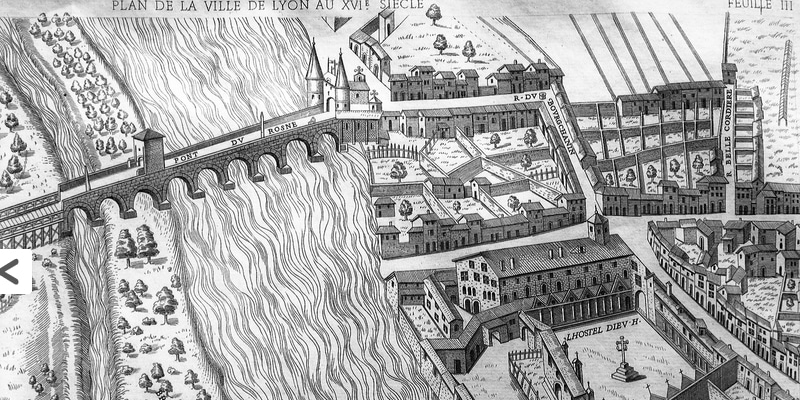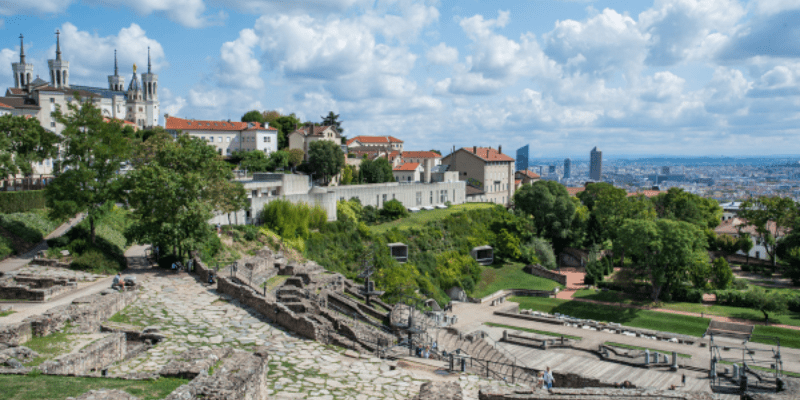Lyon’s story captivates any curious mind. But when exactly was Lyon founded? This question seems simple at first — yet it invites us to trace back through Celtic settlements, Roman ambition, medieval transformations, and modern revolutions. In this article, VulcanKick will dig into the founding of Lyon, unpack its historical context, and reveal how that origin shapes Lyon’s identity today.
The Land Before Rome

Before any formal “founding,” the area destined to become Lyon had long been inhabited. Archaeological evidence shows signs of settlement along the banks of the Saône and Rhône rivers well into prehistory. Tribes of Gauls (Celtic peoples) established hill forts (often called oppida) and small farmsteads in what would become the confluence region.
These indigenous communities spoke Celtic languages, worshipped local deities, and linked themselves to the natural topography — particularly the Fourvière hill overlooking the rivers. Though not a “city” in the Roman sense, this region formed the living tapestry upon which later colonizers would build.
Thus, when we ask when was Lyon founded, we must distinguish between this pre-Roman habitation and the formal foundation of a Roman city.
The Roman Foundation: 43 BCE and the Birth of Lugdunum
The commonly accepted date for the founding of Lyon is 43 BCE. This is when the Roman Senate, acting under the influence of regional strategists and governors, ordered the establishment of a colony on the convergence of the Saône and Rhône rivers. That settlement was named Lugdunum, sometimes styled Colonia Copia Felix Munatia, intended to bring Roman veterans and stability to Gaul.
Lucius Munatius Plancus, then governor of Gaul, is widely credited with founding the colony. His role is often emphasized in classical sources and modern historical analyses. The foundation came shortly after Julius Caesar’s death (44 BCE), in an era when Rome was consolidating influence in formerly Gallic lands.
Lugdunum was placed on the western slope of the Fourvière hill, with strong geographical advantages: commanding views, defensibility, and control of river routes., eventually becoming the capital of the province of Gallia Lugdunensis. It also spawned major roads leading to the frontiers of Gaul and beyond. Two Roman emperors — Claudius and Caracalla — were born there.
In short: when was Lyon founded? In 43 BCE as Lugdunum under Roman auspices.
From Lugdunum to Lyon: Name, Growth, and Transition

Name and Etymology
The original name Lugdunum likely comes from Gaulish roots: Lugus (a Celtic deity) and dunon (fortified hill or fortress). Over time, the name evolved. Under Latin and later medieval influence, Lugdunum gradually became Lugdun, Lugdon, then Luon, and eventually Lyon.
Some sources interpret Lugdunon as “hill of Lugus,” others as “hill of light” or “hill of the crow,” depending on linguistic reconstructions. The name’s transformation reflects both linguistic evolution and changes in political authority.
Roman Prosperity and Trials
Under Roman rule, the city flourished. It grew in importance as a political, economic, and cultural hub. By the 2nd century AD, its population may have reached 50,000 to 100,000 inhabitants (some estimates go even higher).
Lugdunum was the starting point for many major Roman roads — making it a transport and trade hub across the empire. It also hosted theaters, sanctuaries, forums, and public baths.
But the city also suffered through conflict. In 197 AD, during civil unrest, the city was badly damaged in the Battle of Lugdunum, after which it took time to recover. Still, it retained prestige and continued under Roman dominion until the empire’s decline.
Medieval Transformation
As the Roman Empire fragmented, Lugdunum’s role evolved. In the early medieval period, it became an ecclesiastical center. Bishops of Lyon rose in influence, and the city gradually became known for its spiritual importance more than its imperial fame.
By the 12th–13th centuries, Lyon had acquired municipal structures, guilds, and consular governance. Trade — especially the silk trade in later centuries — revived its economic strength. The city formally entered the Kingdom of France around the 14th century, transitioning.
Lyon’s Founding in Context: Why 43 BCE Matters
Why does the date 43 BCE hold such meaning today? Here are key reasons:
- Continuity & identity: Lyon often celebrates itself as a city more than 2,000 years old — a continuity that stems.
- Cultural legacy: Many architectural ruins, museums (especially the Gallo-Roman Museum), and the urban layout pay homage to that deep past.
- City mythos: The founding with Roman veterans gives Lyon a narrative of dignity, classical heritage, and connection to European civilization.
- Tourism & branding: “Born in 43 BCE” is a powerful hook for promoting Lyon’s heritage, appealing to history lovers.
Thus, while people inhabited the region earlier, the “official” founding date anchors Lyon in Rome’s imperial era.
Timeline Highlights: Key Milestones Since Its Founding

Below is a concise timeline to support and contextualize when Lyon was founded and how it evolved:
| Period / Date | Event |
| Prehistory / before 1000 BCE | Celtic tribes occupy the Lyon region, small settlements on hills and rivers |
| 43 BCE | Roman foundation of Lugdunum by Lucius Munatius Plancus |
| 1st–2nd centuries AD | Rapid growth: becomes capital of Gallia Lugdunensis; major urban center |
| 197 AD | Battle of Lugdunum damages the city; recovery follows |
| Late Roman period | Decline of central power, invasions, and gradual transformation |
| 5th century | City under Burgundian and then Frankish rule; bishopric gains strength |
| 12th–14th centuries | Rise of consular authority, integration into French sphere |
| Renaissance–18th centuries | Lyon becomes a silk and banking center; abundant trade |
| French Revolution onward | Modernization, industrialization, and 20th/21st century growth |
These milestones help readers see when Lyon was founded in relation to centuries of historical change.
Common Misconceptions and Clarifications
- “Was Lyon founded in the Middle Ages?”
- Nope — that’s a mix-up. While many French cities trace core identities to medieval charters, Lyon predates that by over a millennium.
- “Was Lyon ‘discovered’ later, even if the Romans only formalized it in 43 BCE?”
- The area was known and settled, but in terms of city planning, legal status, infrastructure, and influence, 43 BCE marks its formal founding.
- “Is 43 BCE certain, or debatable?”
- Although ancient sources vary, the consensus among historians strongly supports 43 BCE as the foundation year.
- “Does ‘founding’ refer to when football club Lyon was formed?”
- No — here we speak of the city itself. The football club Olympique Lyonnais was founded in 1950, quite distinct from the city’s founding.
What “When Was Lyon Founded” Tells Us About Lyon Today
Knowing when Lyon was founded isn’t just trivia. It unlocks threads connecting:
- Architecture & archaeology: Roman ruins, ancient theaters, and museum exhibits reflect the city’s deep timeline.
- Urban layout: The hill of Fourvière, old town (Vieux Lyon), the riverbanks — many modern features echo Roman planning logic.
- Cultural prestige: Lyon’s identity as a historical, cultural, and gastronomic center draws heavily on its ancient roots.
- City narratives: When local guides say “this street has seen 2,000 years of footsteps,” they lean on that founding memory.
For residents and visitors alike, Lyon’s Roman birth anchors it in dee.
Final Thoughts
When was Lyon founded? In 43 BCE, as the Roman colony of Lugdunum under Lucius Munatius Plancus. That foundation wasn’t the start of life in the region — people lived there long before — but it was the turn where history turned the city into a landmark.
Today, Lyon carries that DNA in its stones, its museums, its narrow streets and towering hills. That founding moment links it to the Ancient World and reminds us how empires, faiths, and cultures layer upon one another.
If you’re curious to learn more — about Lyon’s Roman ruins, medieval evolution, or how the modern city preserves its heritage — stay with VulcanKick. Dive into our articles next on “ancient sites in Lyon,” “Roman influence on French cities,” or “how Lyon’s history shapes its streets.”






